
The luckiest teams in the Enduro World Series have a physical therapist who accompanies them to all the races, helping them maintain and gain mobility and strength with warm ups, cool downs, and overall better training. It’s like having a world-class mechanic for your body.
Not all of the skills related to improving mobility and recovery overlap well with actual gravity racing, but a physio who can shred can likely understand a rider’s needs better than one who doesn’t ride trails. The four EWS racers on the Specialized Enduro Team are fortunate to have a legitimate enduro racer as their physio. Alex Marchal is a four-time Belgian national enduro champion, and her riding style is about as smooth as can be, no matter how rough the ground is. I had a chance to pedal with her at the EWS race in La Thuile, Italy, where she handily rolled away from me on the descents any time I made the smallest mistake. Her movements on the bike look more like she’s skiing deep powder than riding a gravity track. Mad skills.

Alex originally studied physical education in her home country of Belgium, and set out teaching PE at a nearby school for a few years. Her love for sports is lifelong, and she knew that in order to enjoy her career, it would have to include a good amount of movement. In practice the PE teaching gig turned out to be somewhat boring, with students just wanting to engage in the activities immediately instead of digging into skills acquisition with her and learning fundamentals. She has a passion to work with folks in ways that will truly help them improve, and she wanted to ride her mountain bike, so she stuffed a suitcase and went to France to attend an MTB skills instructor training course.
Back when Alex was training to teach physical education, she had a nasty fall during handball training that injured her shoulder. She went to see a physical therapist to learn how to rehabilitate the joint and had an eye-opening experience. Alex says that “she was really listening to me, and every time I went there I felt a lot of progress. Each time we did something different, and I learned so much. I though it was a great way to help people be more efficient in life and in their sport. So that was the beginning for me.”
Following the MTB skills course, Alex decided to go back to school and become a physical therapist. She noted multiple connections between what she learned in her PE instruction courses and the new physio work, and appreciated how broad the field of physical therapy can be. Physical therapists get to work with people of all ages, focusing on mobility, strength, recovery, rehabilitation, and flexibility for a wide range of activities. She appreciated the diversity of patients and healing methods, and has learned everything from rehabilitation movements and massage technique to a bit of work with different breathing techniques. Alex has been working as a full time physical therapist for a short while now, and she’s eager to continue expanding the injury-prevention and healing methods that she can offer to her patients.
Alex lives in Gluiras, France, which is situated a little over two hours south of Lyon. In her current day job, she races around the French countryside, dashing from home to home to work with as many patients as possible in a given day. The majority of her clients are elderly people who need help maintaining mobility and recovering from injuries around the home. She says that she enjoys helping people feel better in their daily lives. For some of her clients, she will be the only person they interact with all week, and the connections they build are strong and meaningful. Their treatments range from learning new exercises to increasing mobility and strength to going for a walk to check the mail, and all points in between.
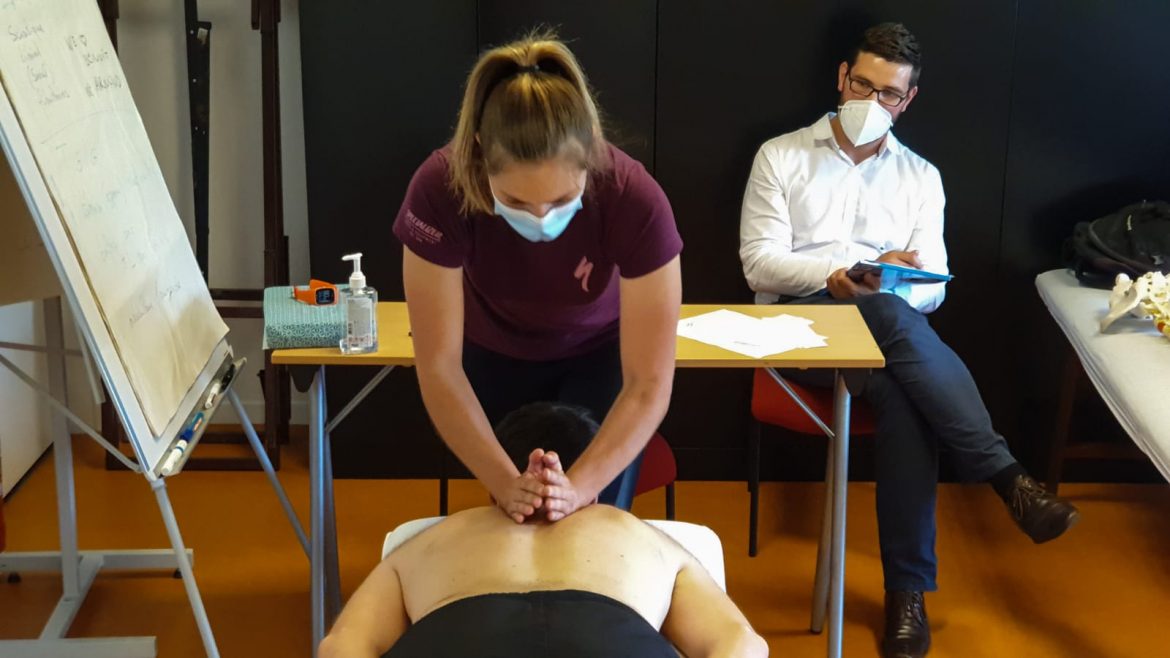
This is Alex’s first season working with the Specialized Enduro Team, and she is intrigued by the new range of challenges. She has been a Specialized ambassador for several years now, and the pairing with a Specialized pro team is somewhat random. The team manager asked her to join for the 2021 EWS races before they had a bike sponsor, and shortly after accepting the gig they told her that the title sponsor would be Specialized. It’s not that she needs to ride the same bikes as the rest of the team, but the serendipity isn’t lost on her.
The four athletes who Alex works with have very different physiological needs. She says that Kevin Miquel was recently struggling with some forearm pain, and she regularly massaged and stretched on those muscles and the ones that support them to prepare him for the next day’s training. She also taught him a number of warmup techniques he could try before each stage to help prevent the pain. Charles Murray on the other hand is apparently a brick shit-house of muscle and fitness, riding every single day and needing very little help with pain or mobility — apart form his pit crashes after the races. Oops.
Specialized teammate, Sofia Wiedenroth, lives with a unique physical challenge where her bones break quite easily, and the healing process is longer than average. Alex works with her on strength and mobility exercises that are intended to prevent injuries, and she helps Wiedenroth reduce the pain of coming back from injury. All gravity racers will hit the ground a few times a year, and the strength and joint mobility work that this team learns with Alex is invaluable. It allows them to get back on the bike faster following an injury, with more strength, endurance, and confidence. In some cases the work they do together will prolong the athletes’ racing careers.

At an EWS event Alex is responsible for a regular massage regiment to help the athletes recover faster and more fully. She also goes over warm-up routines and mid-race stretching to help them stay limber on the bike. While the riders are sleeping or pedaling, Alex is making food for them. Each of the four teammates has their own hyper-healthy food stash that’s ready to eat whenever they’re hungry. The support team keeps those stashes full, which consumes a sizable portion of their morning hours. When she’s not cooking or bending people’s joints around Alex is on track, cheering for the riders and relaying their messages to the mechanics below.
Why don’t all pro teams have a physio? Well, nearly all professional road racing teams do, but they often have larger budgets. Hopefully, as mountain biking gains popularity, teams and riders will have a deeper well of resources to pay for vital teammates like Alex. Even the teams that can pay a physio are only doing so during the season, so Alex is currently maintaining her practice back home. She hopes to shift toward a dedicated position with the squad in the future, potentially teaching mountain bike skills and organizing trail tours during the off season.
Most riders will stretch immediately after a ride or race, if we stretch at all. Alex says that it’s better to let your muscles rest and heal after a ride, carving out intentional time the following day for a longer and more thorough mobility session. She says that the work will be more effective if we create a specific time just for mobility and flexibility work, rather than cramming it between a ride and a shower. She recommends checking out Dialed Health on Instagram, where you will find cycling-specific mobility info and exercises to fill that dedicated block of time.


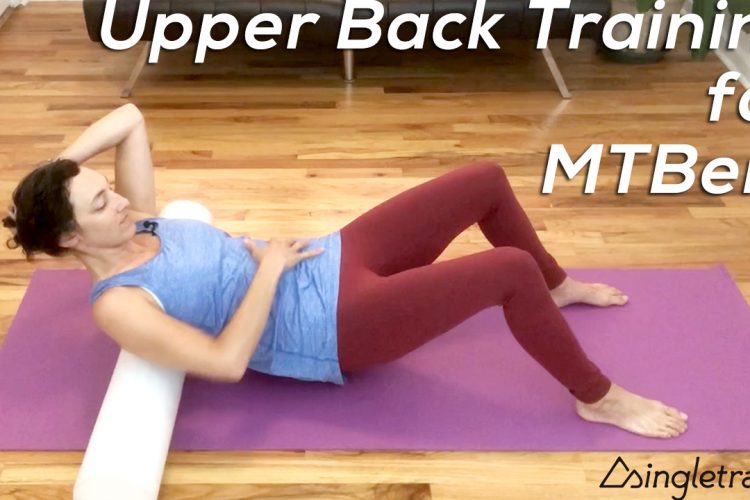
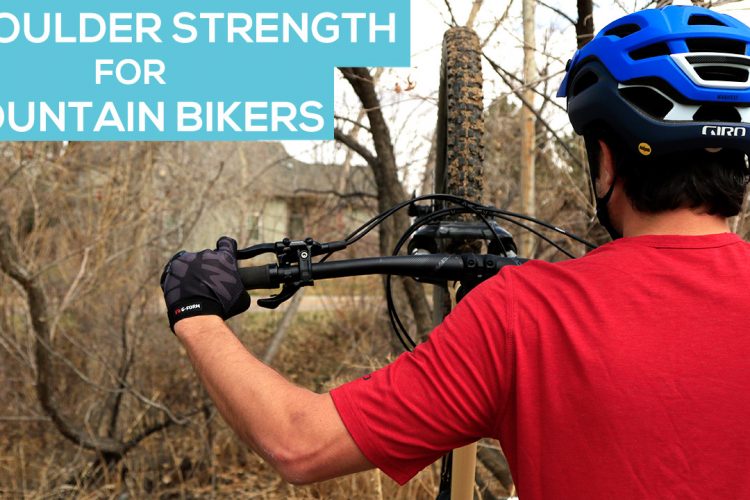


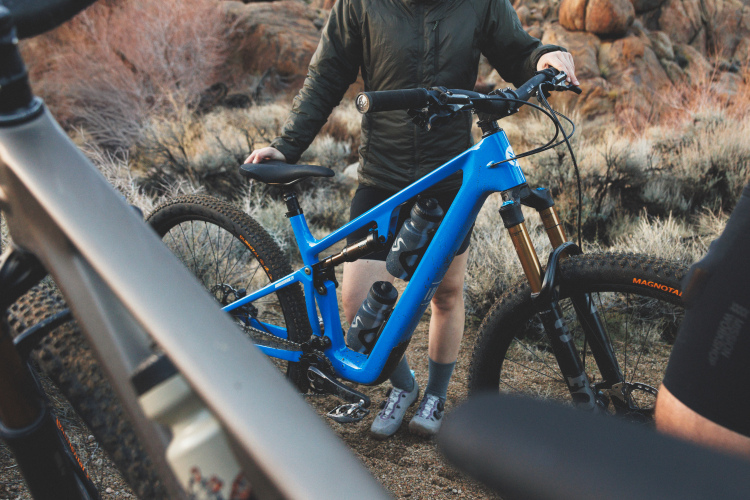
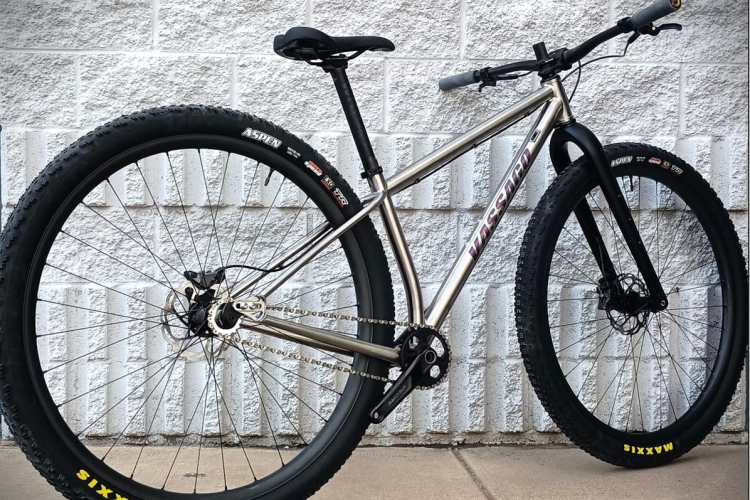
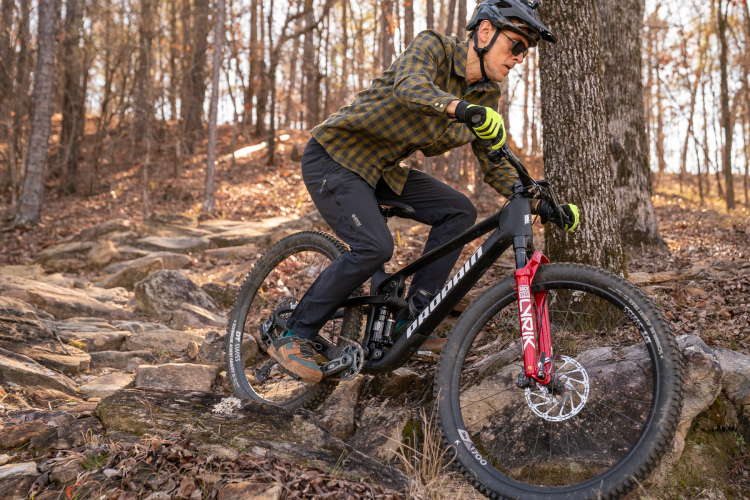
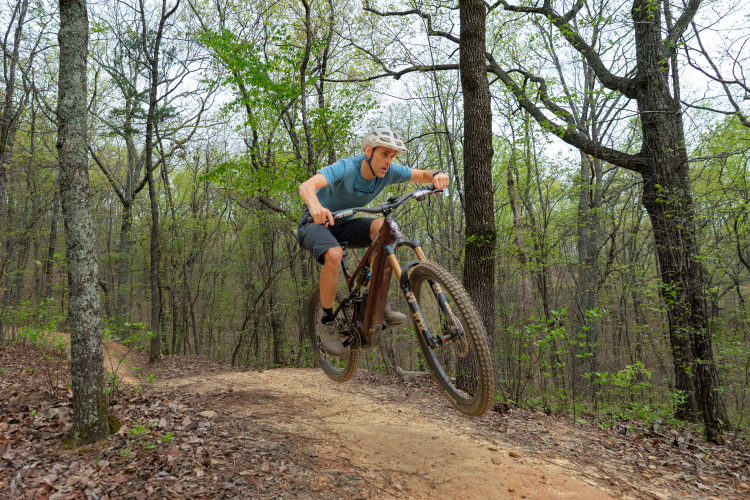

0 Comments